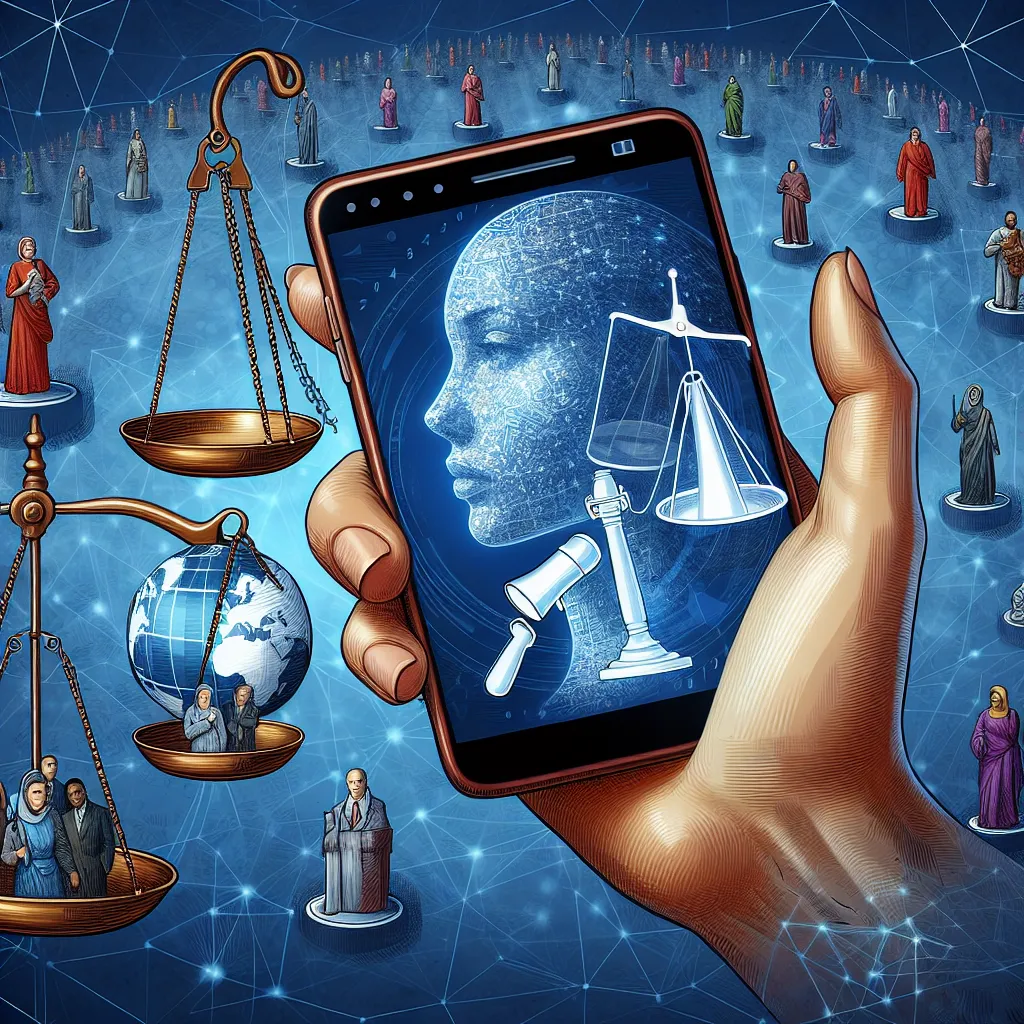Digital technologies have become an integral part of our daily lives, and their impact on human rights is a topic of growing importance. This article will explore how this subject is addressed in IELTS Writing Task 2, providing sample essays and valuable insights for test-takers aiming to achieve high band scores.
Nội dung bài viết
Based on recent IELTS exam trends, questions related to the impact of digital technologies on human rights have been appearing more frequently. This topic is likely to continue being relevant in future tests due to its global significance. Let’s examine a typical IELTS Writing Task 2 question on this subject:
Some people believe that the widespread use of digital technologies has enhanced human rights, while others argue that it has led to increased violations. Discuss both views and give your own opinion.
Analyzing the Question
This question requires you to:
- Discuss how digital technologies have enhanced human rights
- Explain how digital technologies have led to human rights violations
- Present your own opinion on the overall impact
It’s crucial to address all parts of the question and provide a balanced argument before stating your personal view.
Sample Essay (Band 8-9)
Digital technologies have revolutionized the way we communicate, access information, and participate in society. While some argue that these advancements have strengthened human rights, others contend that they have facilitated new forms of rights violations. This essay will examine both perspectives before presenting my own stance on this complex issue.
On one hand, digital technologies have undeniably enhanced human rights in several ways. The internet and social media platforms have amplified voices that were previously silenced, allowing marginalized groups to share their experiences and mobilize support for their causes. For instance, the Arab Spring demonstrations in 2011 were largely coordinated through social media, enabling protesters to organize and document human rights abuses. Additionally, access to online education and information has empowered individuals to learn about their rights and seek justice, bridging knowledge gaps that often perpetuate inequality.
However, critics argue that digital technologies have also enabled new forms of human rights violations. Government surveillance and data collection practices have raised serious concerns about privacy rights and freedom of expression. The case of Edward Snowden revealed the extent of mass surveillance programs, demonstrating how digital technologies can be used to infringe upon civil liberties. Moreover, the spread of misinformation and hate speech online has sometimes led to real-world violence and discrimination, threatening the rights of vulnerable communities.
In my opinion, while digital technologies have indeed facilitated some human rights violations, their overall impact on human rights has been more positive than negative. The unprecedented access to information and platforms for expression has empowered individuals and communities to advocate for their rights more effectively than ever before. However, it is crucial that we address the challenges posed by these technologies through robust legal frameworks and ethical guidelines to ensure that the digital realm remains a space that promotes and protects human rights.
In conclusion, the impact of digital technologies on human rights is multifaceted and continually evolving. As we navigate this digital age, it is essential to harness the potential of these technologies to advance human rights while mitigating their potential for abuse.
(Word count: 339)
 Digital technologies and human rights
Digital technologies and human rights
Sample Essay (Band 6-7)
In today’s world, digital technologies are everywhere and they affect our human rights. Some people think these technologies help protect our rights, while others believe they cause more problems. This essay will look at both sides and give my opinion.
On the positive side, digital technologies have made it easier for people to speak up about their rights. Social media platforms allow people to share information quickly about human rights issues. For example, when there are protests against unfair governments, people can use their phones to show the world what’s happening. Also, the internet gives people access to education about their rights, which can help them stand up for themselves.
However, there are also negative effects of digital technologies on human rights. Governments and companies can use these technologies to spy on people, which goes against our right to privacy. Sometimes, false information spreads online and causes harm to certain groups of people. This can lead to discrimination and even violence in real life.
In my opinion, while there are some problems with digital technologies, they have done more good than harm for human rights. The ability to share information and connect with others around the world has given more power to people fighting for their rights. But I think we need better rules to stop the misuse of these technologies and protect people’s rights online.
To conclude, digital technologies have both positive and negative impacts on human rights. It’s important to use these technologies in a way that helps protect people’s rights while trying to solve the problems they can cause.
(Word count: 269)
Writing Tips for This Topic
-
Vocabulary: Use a range of topic-specific vocabulary related to digital technologies and human rights. For higher band scores, incorporate more sophisticated terms and phrases.
-
Grammar: Employ a variety of sentence structures and tenses. For band 8-9, use complex sentences and advanced grammatical structures accurately.
-
Cohesion: Ensure your essay flows logically with clear paragraphs and appropriate linking words. Higher band scores require more sophisticated cohesive devices.
-
Task Response: Address all parts of the question fully. For top scores, provide a nuanced discussion with well-developed ideas and a clear personal opinion.
-
Examples: Use relevant, specific examples to support your points. Higher band scores often include more detailed and varied examples.
Key Vocabulary to Remember
-
Digital divide (noun) /ˈdɪdʒɪtl dɪˈvaɪd/ – The gap between those who have access to digital technologies and those who don’t.
-
Cybersecurity (noun) /ˌsaɪbəsɪˈkjʊərəti/ – The practice of protecting systems, networks, and programs from digital attacks.
-
Data privacy (noun) /ˈdeɪtə ˈprɪvəsi/ – The aspect of information technology that deals with the ability an organization has to determine what data in a computer system can be shared with third parties.
-
Digital literacy (noun) /ˈdɪdʒɪtl ˈlɪtərəsi/ – The ability to use information and communication technologies to find, evaluate, create, and communicate information.
-
Online censorship (noun) /ˌɒnlaɪn ˈsensəʃɪp/ – The suppression of speech, public communication, or other information on the internet.
-
Digital footprint (noun) /ˈdɪdʒɪtl ˈfʊtprɪnt/ – The information about a particular person that exists on the internet as a result of their online activity.
-
Surveillance capitalism (noun) /səˈveɪləns ˈkæpɪtəlɪzəm/ – An economic system centered around the commodification of personal data with the core purpose of profit-making.
-
Digital citizenship (noun) /ˈdɪdʒɪtl ˈsɪtɪzənʃɪp/ – The responsible use of technology by anyone who uses computers, the Internet, and digital devices to engage with society on any level.
In conclusion, the impact of digital technologies on human rights is a complex and evolving topic that is likely to remain relevant in IELTS Writing Task 2. As you prepare for your exam, consider practicing with similar questions such as:
- How can governments balance national security concerns with individual privacy rights in the digital age?
- Discuss the role of social media in promoting or hindering democracy and human rights.
- To what extent should internet access be considered a basic human right?
Remember to analyze these questions carefully, structure your essays logically, and support your arguments with relevant examples. We encourage you to practice writing an essay on the topic provided in this article and share it in the comments section below. This active practice will help you improve your writing skills and prepare effectively for the IELTS exam.
For more insights on related topics, you might find these articles helpful:


